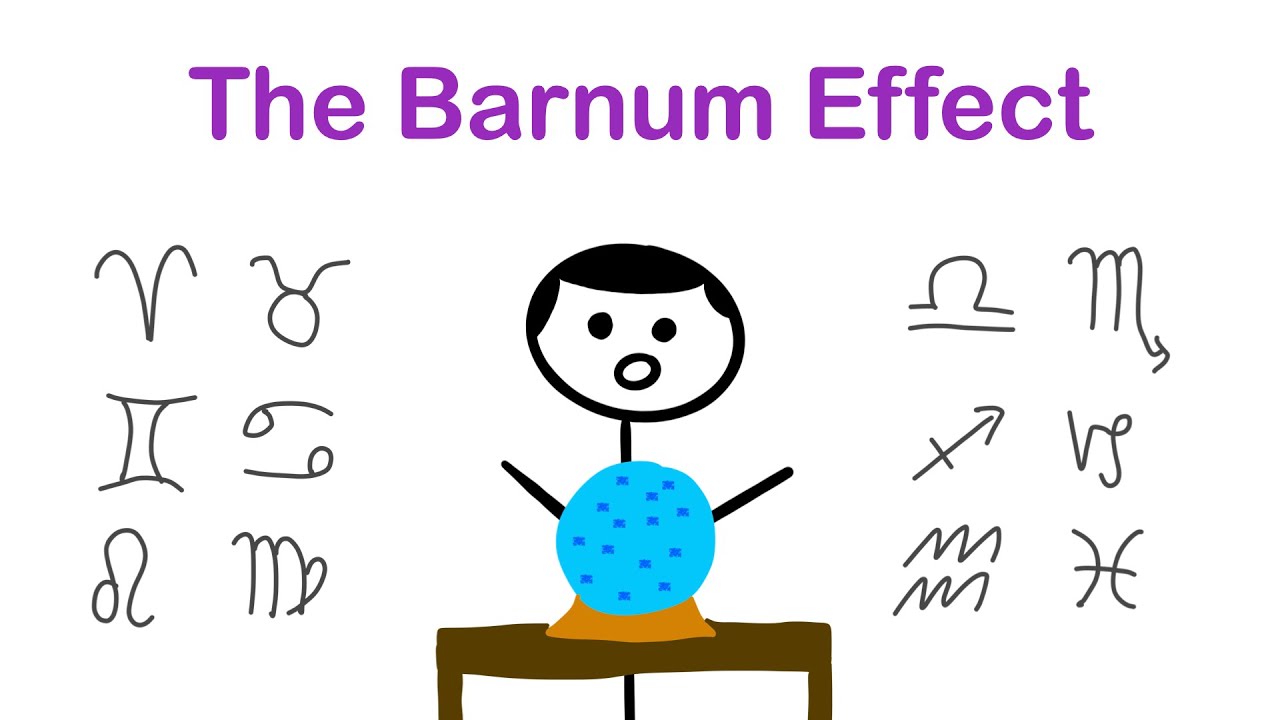The Forer Effect (Barnum Effect): Personalized Yet Universal
The Forer Effect, named after psychologist Bertram R. Forer, is a cognitive bias that occurs when individuals believe that vague, general, or personalized statements about their personality are highly accurate, even when the descriptions could apply to almost anyone. This bias is often used in astrology, horoscopes, and personality assessments.
Examples of the Forer Effect:
Horoscopes: Many people read horoscopes that offer vague personality descriptions and attribute their own traits to these descriptions, believing them to be highly accurate.
Personality Assessments: Individuals may complete personality assessments, like the Myers-Briggs Type Indicator, and find that the results resonate with them, even though the assessments use generalized statements.
Fortune Tellers: During a visit to a fortune teller, a person may be told they are adventurous and independent. Despite this being a common and vague description, they leave the session believing the fortune teller’s insights are incredibly accurate.
The Forer Effect in Action:
Imagine a scenario where a group of individuals participates in a personality assessment. Afterward, they receive personalized feedback about their personality based on the assessment results. Even though everyone receives the same feedback with vague, generalized statements like “You are a considerate and thoughtful person,” each person believes the assessment accurately captured their unique personality traits.
Solutions to Address the Forer Effect:
Critical Thinking: Encourage individuals to engage in critical thinking when encountering vague or generalized personality descriptions. Ask them to consider whether the description could apply to many people.
Evidence-Based Assessments: Promote the use of evidence-based personality assessments that have been scientifically validated. These assessments are less likely to rely on vague and generalized statements.
Self-Reflection: Encourage individuals to reflect on their own traits and characteristics independently, rather than relying on external sources for validation.
Skepticism: Foster a healthy dose of skepticism when consuming content that offers personalized personality descriptions. Encourage individuals to question the accuracy of such descriptions.
In conclusion, the Forer Effect (Barnum Effect) is a cognitive bias that leads people to accept vague and generalized personality descriptions as highly accurate. To mitigate the impact of this bias, critical thinking, the use of evidence-based assessments, self-reflection, and skepticism are valuable tools. By becoming more discerning consumers of such descriptions, individuals can make more accurate judgments about their own personalities.
